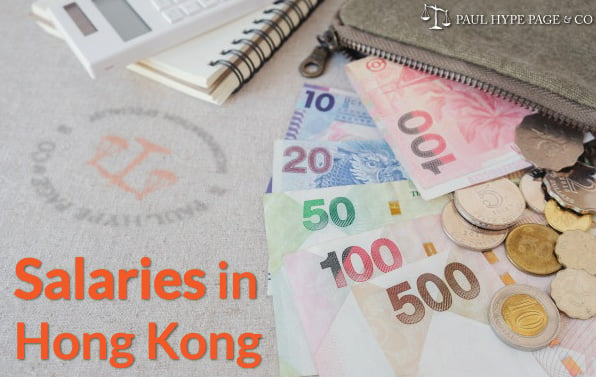Employers and employees of Hong Kong are guided and regulated by the legislation of the Employment Ordinance (EO). In this article, we are going to be discussing and highlighting some of the basic labour legislation in Hong Kong. Expats should know about these legislations to protect themselves in the workplace.
Wages
The minimum wages
The law of minimum wage came into existence in Hong Kong in 2011. The current minimum wage as stipulated in Hong Kong’s labor law is HK$ 37.50 per hour.
The wages payment time
Salaries and wages should be paid on the last day of the wage period. But in case of any delays, the payment should not exceed 7 days after the end of the wage period.
The deductions made from the wages
It is the responsibility of the EO to regulate the deductions that need to be made on the wages.
Working hours
There are no restrictions on the working hours in Hong Kong. Only exception is for young persons who are employed in the industrial undertakings where special regulations apply.
Social Security
There are no deductions that are made from the employees’ salaries towards the social security contributions in Hong Kong. The city-state has a non-contributory system towards social security.
Severance Pay and Long Service Pay
Severance Pay
If a Hong Kong employee who was employed for not less than 24 months is being laid off for reasons not covered under the labor law, then they are viable for compensation. The amount of severance pay is usually 2/3 of his or her previous month’s pay or 2/3 of HKD 22500. The one that the employer will find comfortable and the payment should not exceed HK$ 390,000 if the termination was as a result of redundancy or underemployment.
Long Service Pays
An employee who was contracted for a relatively long period, say no less than five years, is entitled to long service compensation if they are dismissed. The compensation should be made whether the dismissal was issued with or without notice from the employer. The formula for calculating the amount of long service pay and the severance pay is the same and equally, the maximum compensation should not be more than HK$390,000. However, if the contract that was signed between the employer and the employee provides more generous compensations than that of the statutory entitlements then the employer should comply with the contract.
Holidays and Leave
All Hong Kong employers, according to the labor laws, are entitled to 12 statutory holidays in a year. An employer can choose to unilaterally grant an alternative holiday rather than on the statutory holiday. Still, the employer and the employee can agree on the holiday on a period that is relevant to the statutory timeframes.
Employers who have been on a long contract for a minimum of three months are entitled to statutory holiday pay that is payable not later than the day that he or she was to receive the wages or salaries.
Further, the EO stipulates that on top of the paid statutory holiday, an employee who is under the continuous contract is entitled to at least one rest day every seven days.
Annual Leave
Employees who are employed under a continuous contract are entitled to annual leave that lasts between 7 to 14 days. The statutory annual leave is payable normally as the daily average wage the employee receives.
Maternity leave
Under the Employment Ordinance, a female employee under a continuous contract, after informing her employer of her pregnancy, is entitled to the following maternity leave:
- A 10-week continuous maternity leave
- If the confinement is later than the initial confinement date, the number of late confinement days is added to the leave.
- An additional period that does not exceed four weeks will be granted to those who develop complications or illness during the pregnancy or confinement.
However, if the contract specified a maternity leave period that is more favorable then the employee will be granted the maternity leave days as stipulated in the employment contract. The pay for maternity leave is 4/5ths of the employee’s daily average wages.
Paternity leave
The paternity leave is granted to a male employee in accordance with the Employment Ordinance during the confinement of his spouse. The leave is permitted if:
- He is the father of the child
- He must be employed for a continuous basis
- He had given a notification to the employer on the spouse’s confinement.
However, if the contract that was signed between the employer and the employee provides for a more favorable offer than those defined by the EO, then the employer must comply with the contract terms.
The notification and certificate requirement
A male employee must notify the employer at least three months before the expected leave date.
If the three months’ notice is not given, the employee must notify the employer at least five days in advance.
Payment for Paternity Leave
- To qualify for a paid paternity leave, first, you should note that the leave should not exceed five days. Besides, the employee must: Be a continuous contract that is not less than 40 weeks
- Have presented to his employer with the requisite documents to substantiate that the child is born in Hong Kong. This can be a birth certificate which must also have the employee’s name as the child’s father.
Termination
During the first month of probation, either the employer or employee can terminate the contract without notice. After one month of probation, the contract can be terminated with a no-less-than-seven-day notice if no period is specified.
In any other cases that are not probation then an employee:
- Is entitled to less than one month notice of termination where the contract was deemed to be renewed monthly.
- Is entitled to the agreed period which should not be less than 7 days where the contract is monthly renewable.
What are some of the payments that an employee is entitled to if the contract expires either by notice or expiry of a contract?
The following will be payable if the contract of employment is terminated either by notice or by the expiry of the contract.
- Accrued wages and unused annual leave
Employees are entitled to receive all outstanding wages by the time the notice or expiry of the contract is validated. - End of year payments (EOYP)
If an employee is entitled to an end of year payment, then the employer must cater to the EOYP. Some of how the payment is done include the following:- If the signed contract between the employer and the employee stipulated the proportion in which the EOYP was to be done, then it must be followed.
- If the employment contract is terminated before the EOYP if-then contract was inclusive of the period, then the EOYP becomes due on the same day that the contract of employment terminates.
FAQs
You are mandated to enlist the help of a local agent/firm to incorporate an offshore company. The firm is responsible for taking you through the requirements and steps, answering your concerns, and filling your application. The firm will also assist you to locate the Inland Revenue Department in case you have other concerns.
The agent/firm may also provide you with the registered address needed during incorporation, and fax, and other services like fax or email forwarding.
No, you cannot change the name of your company. To do so will force your company to be deregistered and you will have to incorporate it afresh. Also, another reason is that the company name approval is the first step of company incorporation, it must be approved for use.
If you want to set up a subsidiary company in Hong Kong, then you need to follow 4 simple steps:
- Initiate the incorporation process by a qualified incorporation agency like Paul Hype Page.
- Choose the business entity that you would like your new company to operate under.
- You will be expected to draft the company’s formation document as required by Hong Kong law.
- Present and file all the required documents and submit the fees for the process to proceed.
- Finally, apply for the business licensing and relevant permits according to the industry that your company lies.
The process of starting an online e-commerce store in Hong Kong is not complicated as long as you draw a working plan for your business.
- Find a niche
- Evaluate the viability of the market
- Conducting market research
- Analyze your target market
- Conducting competitive market analysis and learn online business law
As long as you meet all the requirements, you can start a public limited company in Hong without further thought. However, strict rules make more people prefer the incorporation of a private limited company when launching a start-up.
Yes, foreigners can fully own a company in Hong Kong as long as it is incorporated and has permits.
If you need a quick answer to this, it is yes. You can follow these simple steps to start and operate a business in Hong Kong;
- Determine the name under which you wish your company to operate.
- Choose a legal structure for your business.
- You need to incorporate your company (Paul hype Page services will help you with this).
- You also need licenses and business permits before starting the business.
- Finally, you’ll have to manage your business and file your taxes on time.






